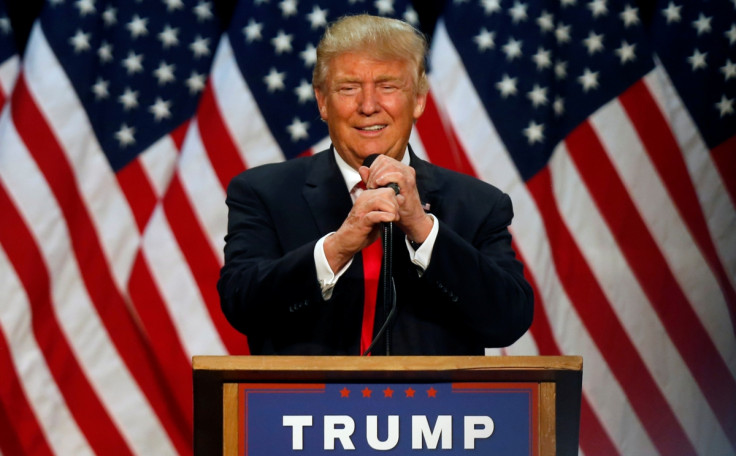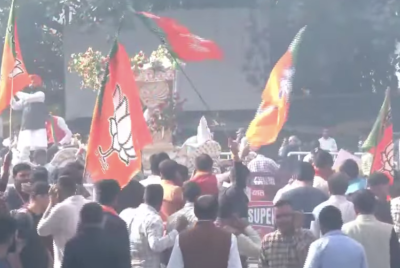Donald Trump backtracks on threat to ban Muslims from entering U.S.

Republican presidential hopeful Donald Trump has backtracked on his much publicised threat that he would ban Muslims from entering the United States if he were to be elected president. Trump was widely criticised when he made the suggestion at a campaign rally, following the Paris attacks in November 2015.
But after the GOP frontrunner welcomed Sadiq Khan's election, Trump said that, if elected, he would be prepared to make an exception to allow the new London mayor to visit the US, which Khan subsequently rejected.
Asked by Fox News Radio's Brian Kilmeade on Kilmeade & Friends about criticism, levelled by Khan, that Trump's idea would make the US and UK less safe and was "ignorant", Trump said: "It's a temporary ban. It hasn't been called for yet. This is just a suggestion until we find out what's going on."
Khan, who is the first Muslim mayor of any major western city, had criticised Trump again while meeting his Paris counterpart, Anne Hidalgo, saying: "Our message to Donald Trump is: this is how you work together; this is the best of humanity; this is the best of the west.
"What's really important is the similarities Paris and London have; they are the most diverse cities in the world. This is an example of the best of our cities – men, women, Muslims, Christians, mayors working together to work for our cities, solving the housing crisis, fixing the air quality, addressing the challenges of integration and making sure our cities are safe."
Trump's ignorant view of Islam could make both our countries less safe. It risks alienating mainstream Muslims. London has proved him wrong
— Mayor of London (@MayorofLondon) May 10, 2016
Paris mayor Anne Hidalgo was less diplomatic, saying: "Mr Trump is so stupid, my God, my God." She and Khan had what is expected to be the first of many meetings to discuss security and other common issues.
Trump's backtrack on the Muslim ban is the latest "policy wobble" during his campaign. He has previously appeared to change his mind on abortion, transgender toilets and taxes. Trump is due to meet House Speaker Paul Ryan, Senator Majority Leader Mitch McConnell and other leading Republicans on Thursday (12 May) to persuade them to back his campaign.
© Copyright IBTimes 2025. All rights reserved.




















